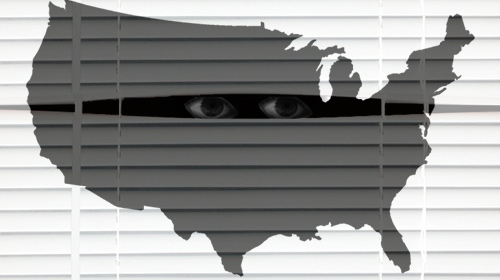
Originally posted by the ACLU of Southern California
Yesterday, a district court judge threw out claims brought by members of Southern California’s Muslim community that the FBI undertook a massive operation to surveil them on the basis of their religion. In tossing these claims from the suit, which was filed by the ACLU of Southern California, the Council on Islamic American Relations (CAIR) and the law firm Hadsell Stormer Richardson & Renick LLP, the court didn’t say that the FBI had not engaged in the alleged surveillance, or that it had indeed complied with the First Amendment. Instead, the court relied on the government’s invocation of the “state secrets” privilege, saying that even trying to determine whether the FBI had violated the Constitution might risk disclosure of information that could harm national security.
From the term “state secrets,” you might think the case involved spies, hush-hush arrangements with foreign governments, or people detained at secret foreign prisons – as some state secrets cases do. But this one involves the FBI’s investigation into law-abiding U.S. citizens and residents in Orange County, California, called “Operation Flex.” In June 2006, FBI agents recruited Craig Monteilh, a man with a file full of felony convictions, to pose as a convert to Islam at one of the largest mosques in the area. The FBI paid Monteilh to spend the next fourteen months meeting as many members of the Muslim community as he could. He made audio recordings of every interaction, as he gathered names, telephone numbers, e-mails, political and religious views, travel plans, and other information on hundreds of individuals in the Muslim community. According to Monteilh’s own sworn statement, he was told to pay special attention to community leaders and those who seemed especially devout.
The absurdity – and illegality – of Operation Flex were well documented this week on the radio show This American Life. When asked if the FBI had particular targets in the Muslim community that they wanted to have investigated, Monteilh said, “No. They said the targets would come to me.” In other words, Operation Flex was a fishing expedition that targeted people because of their religion. But in the end, after Monteilh began incessantly about jihad and violence, members of the community did exactly what you’re supposed to do: they reported him to the FBI. After hundreds of hours of Monteilh’s time and thousands of taxpayer dollars “Operation Flex” resulted in zero criminal convictions. No one was ever even charged with a terrorism offense.
According to the district court, we’ll never be allowed to know whether the FBI violated the Constitution when they authorized Operation Flex because it would require the disclosure of state secrets. Because the state secrets privilege essentially gives the government a blank check to halt a lawsuit in its tracks, it is currently under fire in Congress. “The ongoing argument that the state secrets privilege requires the outright dismissal of a case is a disconcerting trend in the protection of civil liberties for our nation,” said Representative Jerrod Nadler (D-New York), who earlier this summer introduced a bill to limit state secrets in favor of less drastic alternatives. The privilege also has a troubling history. One of the first modern cases to apply the privilege relied on it to dismiss a suit against the government over the crash of a military plane because of the secrets in the accident report. But decades later, the daughter of one of the pilots discovered that the accident report wasn’t secret at all, and described only negligence — human errors that were embarrassing to the government.
U.S. Justice Department attorney Anthony Coppolino argued that revealing who was being investigated, how they were being investigated, and why they were being investigated would reveal the government’s motives and alert the enemy. But it’s far from certain that the case would require disclosing all that information. And if it ever proved necessary, the Foreign Intelligence Surveillance Act (FISA) provides clear procedures for protecting sensitive information. In a particularly unfortunate twist, because the district court allowed the FISA claims against the individual FBI officers to go forward, it may well end up looking at the same evidence to resolve that claim that it would need to address the claims it threw out.
In our democratic society, it is wrong for the courts to allow the government to avoid defending the legality of its conduct under the Constitution when the rights of hundreds of law-abiding Muslim citizens in Southern California are at stake. We intend to appeal the court’s decision.
Learn more about anti-Muslim bias: Sign up for breaking news alerts, follow us on Twitter, and like us on Facebook.


